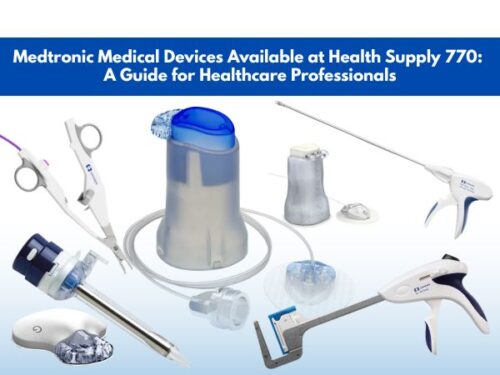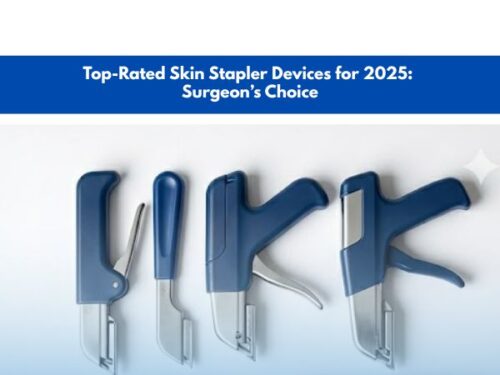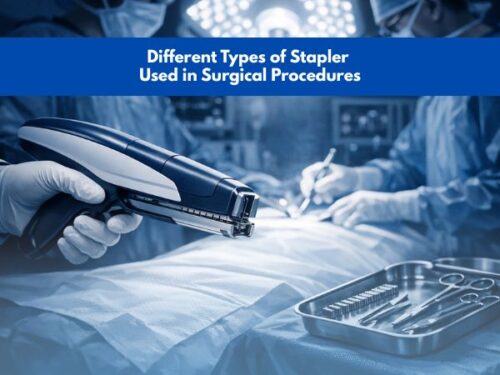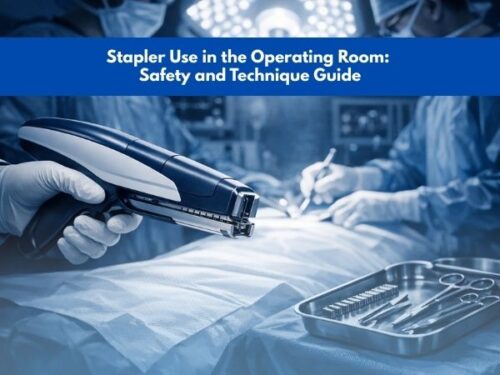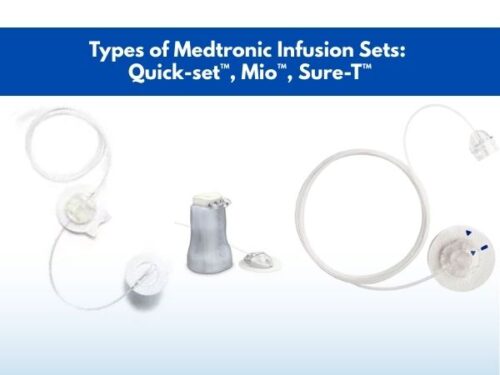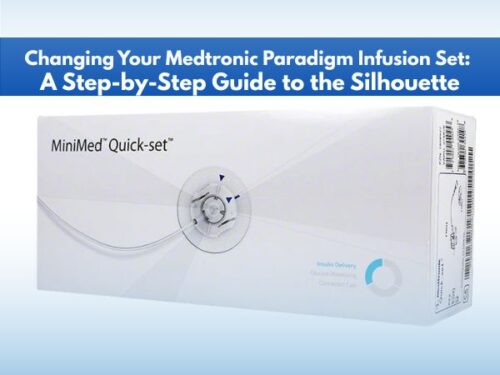CPAP Cleaning Machines: A Must-Have for ResMed AirSense 11 Users
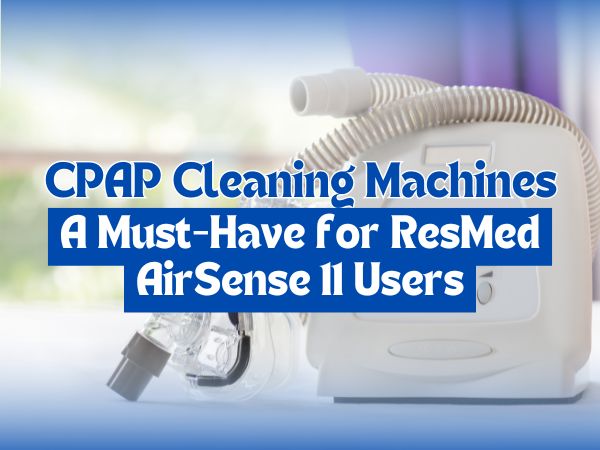
CPAP Cleaning Machines: A Must-Have for ResMed AirSense 11 Users
Sleep apnea is a condition that has pushed so many people towards using respiratory assistance in the form of CPAP machines. These machines keep the airflow continued while the patient is asleep thus resulting in the provision of peaceful sleep. As per the National Council of Aging, Nearly 33 million US adults use sleep apnea machines on a daily basis. While doing so, it is important to take care of these systems. For this purpose, CPAP cleaning machines have been introduced.
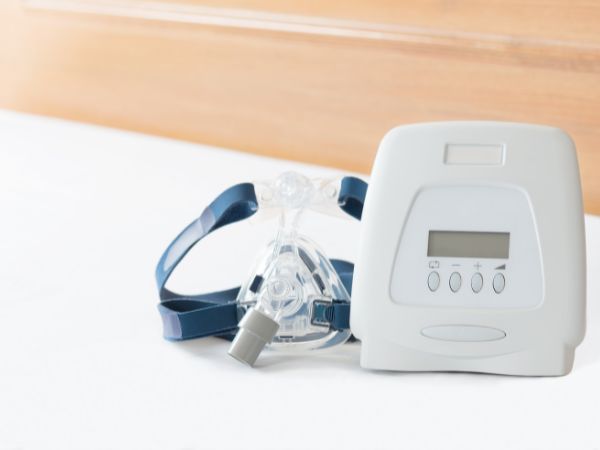
CPAP cleaning machines can sanitize all the accessories of a CPAP system
In this article, let us go through the working principle of CPAP cleaning machines and understand how they add to the longevity of systems like the ResMed AirSense 11.
An Introduction to CPAP Machines
A continuous positive airway pressure machine or a CPAP machine is a respiratory aid for people who suffer from obstructive sleep apnea (OSA), a condition associated with frequently hindered breathing during the night.
When employed, a CPAP machine assists the patient’s natural breathing process by providing a steady flow of pressurized air to the lungs via the nasal or oral cavity. As a result, the lungs keep getting oxygen continuously and the patient can sleep peacefully.
Why Clean a CPAP Machine?
As CPAP equipment is used on a daily basis, it gets dirty very often and can harbor harmful bacteria, fungi, and viruses which can be inhaled followed by the initiation of a respiratory infection.
In addition, materials like dirt, dust, mold, and pollen can also be collected with the CPAP accessories. Hence, there is a need to clean and sanitize CPAP devices as well as their components such as CPAP masks, nasal pillows, headgear tubing, water chambers, etc.
CPAP Cleaning Machines
CPAP cleaning machines are the devices that can be employed to sanitize the CPAP parts. By doing so, it is possible to make the components of the device free from germs. For this purpose, the CPAP cleaning machines employ different mechanisms all of which, despite being effective, have not been approved by the Food and Drug Administration (FDA).
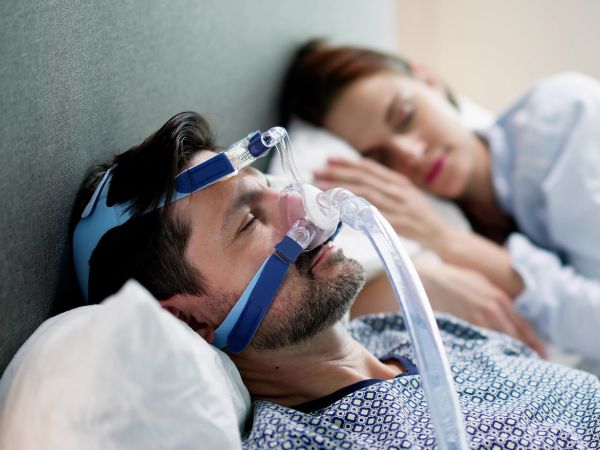
Nasal tubing also needs to be cleaned regularly using a CPAP cleaning machine
How Do CPAP Cleaning Machines Work?
The CPAP cleaning machines utilize the following methods for sanitizing CPAP devices:
· Ultraviolet or UV Light
An effective mechanism employed by CPAP cleaners is the use of UV light. As UV radiations are effective against fungi and bacteria, these are employed for regular cleaning of the CPAP accessories.
This process is good as it does not require multiple cleaning steps to kill germs and is thus hassle-free but it takes longer to complete a single sterilization cycle. However, The CPAP sanitizing machines that employ UV light have not been authorized by the FDA.
· Ozone Gas
The use of ozone gas is also an effective option. Ozone or O3 is an activated form of oxygen that is highly reactive to microbes and kills them in no time. Once the sterilization has been done, the CPAP cleaning devices have mechanisms that convert ozone into oxygen before releasing it into the environment. This way, the ozone levels in the atmosphere do not rise. However, the FDA has yet to give approval to this method.
· Disinfecting Tablets
The CPAP machines can also be cleaned by disinfecting tablets. These are easy to use as the tablet is to be dropped into the machine with distilled water.
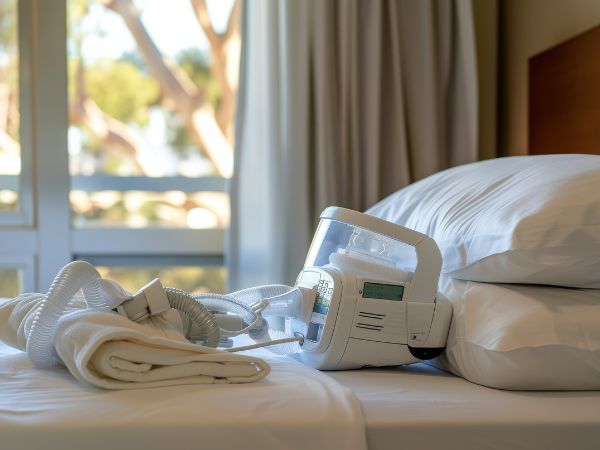
CPAP machines maintain airflow pressure to assist breathing throughout the night
Cleaning CPAP Machines at Home: What Supplies Do I Need?
Apart from the above-mentioned methods of washing through CPAP cleaning machines, the CPAP systems can also be easily cleaned with items that are available in every home. These include:
- White diluted vinegar
- Mild soap or dishwashing soap with no moisturizing agent and no scent
- Warm running water
- A bucket, tub, or sink
- A soft bristle brush
- A cleaning towel
A Step-by-Step Guide for Cleaning CPAP Equipment
Apart from using some of the best sanitizing machines, the manual method can also be followed for regular cleaning of the CPAP components. This can be done by following the given cleaning process:
Disassemble the Components
Unplug the CPAP machine from its socket and disassemble its components. Remove the tubing from the nasal or oral mask as well. Separate the components of the mask i.e. frame, headgear, cushions, etc.
Check for Damage
When the components of a CPAP machine are separated, check each part to identify any possible damage. This can tell when a component needs replacement.
Mix Soap and Warm Water
Mix mild unscented and oil-free soap in warm water of drinking quality in a bucket, tube, or sink. Submerge the components of the CPAP machine into it. Make sure that the temperature of the water does not exceed 30°C or 86°F.
Rinse the CPAP Components
Gently rinse the components of the CPAP system with a soft bristle brush until they are clean. Keep the tubing submerged so that its inner sections also get cleaned.
Use Vinegar for Humidifiers
For cleaning the humidifier tank, white vinegar, and warm water should be combined in equal parts e.g. 1:1 and the product should be soaked in the mixture.
Air Dry the CPAP Accessories
After thorough washing, soak the clean CPAP accessories in cold water and settle them on a towel to air dry completely. As for the hoses and tubing, it is advised to hang them.
Maintaining a CPAP Machine: Do’s and Don’ts
While cleaning the CPAP machine manually or by employing CPAP cleaning machines, it is essential to keep the accessories clean and well-maintained. Moreover, it is also essential to do the replacements at the right time so the functionality of the device remains up to the mark. For this purpose, the following do’s and don’ts should be kept in mind:
Do’s
- Cushion should be cleaned on a daily basis while the frame and the headgear need a weekly cleaning.
- Replace the air filter and the mask cushion every month.
- Replace mask frame and air tubing every 3 months.
- The humidifier tube as well as the mask headgear needs replacement after every 6 months.
- Replace any part that is damaged.
Don’ts
- Do not use harsh soaps and detergents as they can be harmful to the components of the CPAP machines.
- Do not use perfumed soaps for cleaning the machine accessories as these can result in lung infections.
- Do not use deionized water for cleaning and rinsing the CPAP machine components.
- Do not put the CPAP components in a dishwasher or washing machine. Only use CPAP cleaning machines or manual cleaning processes.
- Do not place the washed CPAP machine accessories in direct sunlight.
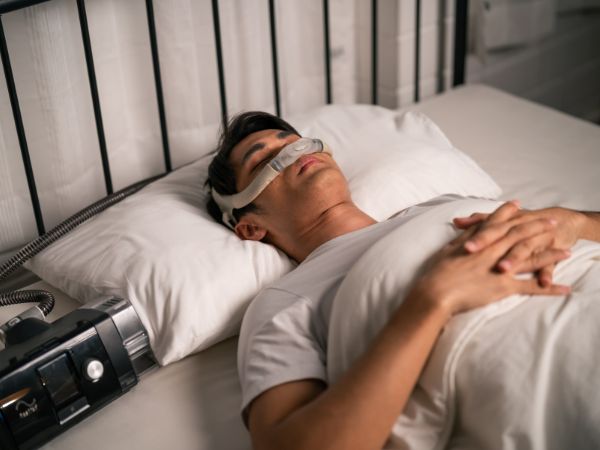
Masks of CPAP machines need sanitizing on a daily basis
CPAP Machines and Cleaning Supplies at Health Supply 770: Features and Specifications
Considering the vast application of different kinds of CPAP machines, many brands have developed effective and highly functional options. One such item is the ResMed AirSense 11 system which is known for its reliability and efficient performance.
In addition, the newly introduced features in the ResMed AirSense system have rendered the device even more effective when it comes to the management of obstructive sleep apnea. This ResMed AirSense 11 CPAP machine is available at the Health Supply 770 and has been detailed below along with its features and purchase link:
ResMed AirSense 11 AutoSet
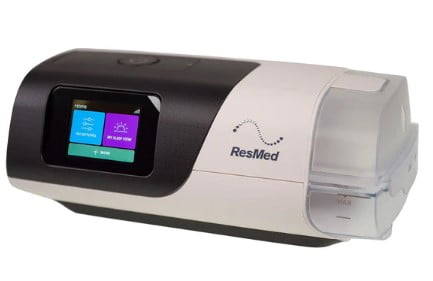
Product Details
ResMed AirSense 11 autoset is a respiratory-assisting device that comes with advanced features. The system is employed for the management of sleep apnea, a condition associated with frequently restricted airflow. As a result, the patient wakes up from sleep gasping for air. With the use of CPAP machines like the ResMed AirSense 11 autoset, the airflow pressure can be maintained overnight and the patients can sleep peacefully.
The ResMed AirSense 11 autoset is a system that is lighter in weight and has a smaller size. Its compact design allows the device to be installed in a smaller area e.g. on the bedside table, etc. This feature also facilitates traveling with the ResMed AirSense 11 autoset as it can be packed and carried along with easily.
The pressure range of the ResMed AirSense 11 CPAP autoset can be set at any value between the range of 4 to 20 cm/H2O. In addition, the automatic ramp time of the system can be set between 5 to 45 minutes. In this regard, the machine can either set the AutoRamp automatically or the user can make the necessary adjustments manually.
The ResMed AirSense 11 CPAP system allows the adjustment of pressure value at a maximum of ± 0.5 cm H2O or 0.5 hPa. Furthermore, the range for the air pressure is between 1060 hPa to 700 hPa when the device is being operated between sea level to an altitude of 3,010 m. Moreover, the rate of airflow in the device is up to 6 L/min.
The temperature range between which the device performs best is 41°F to +95°F or +5°C to +35°C. Moreover, when it comes to storing the device, the temperature should be set between the range of -13°F to +158°F or -25°C to +70°C.
The ResMed AirSense 11 system is extremely quiet in operation and produces a noise of not more than 27 dBA with an uncertainty of 2 dBA with a noise level of 35 dBA with an uncertainty of 2 dBA. This feature helps the patients sleep peacefully, especially when they are light sleepers. As for the power needs, the device requires 65 W for its operation.
Overall, the ResMed AirSense 11 system is both comfortable and convenient to use for both the patient as well as the caregiver. The device comes with a warranty of up to 2 years. When it comes to its maintenance, the parts of the system can either be washed using CPAP cleaning machines or manually using the above-mentioned materials.
635871639 Citrus II CPAP Mask Cleaner Wipes 62 Count CS12
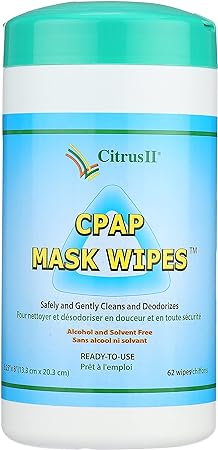
US$128.26
635871639 Citrus II CPAP Mask Cleaner Wipes 62 Count CS12
Product Details
Citrus II CPAP mask cleaner wipes are pre-moistened and have a citrus-based formula. These products are single-use and are employed for cleaning the masks attached to the CPAP machines. Although, this cleaning can also be done using CPAP cleaning machines using these wipes is more convenient and less time-consuming.
These Citrus II CPAP mask cleaner wipes can also be used along with the CPAP cleaning machines to remove the dirt and oil buildup on the mask. In addition, these also kill any germs present on the mask. Its odor-removal formula also keeps the masks free from generating a certain smell which is often associated with the CPAP assembly.
*Note: The prices mentioned in the article are taken from the Health Supply 770 website. They may vary over time.
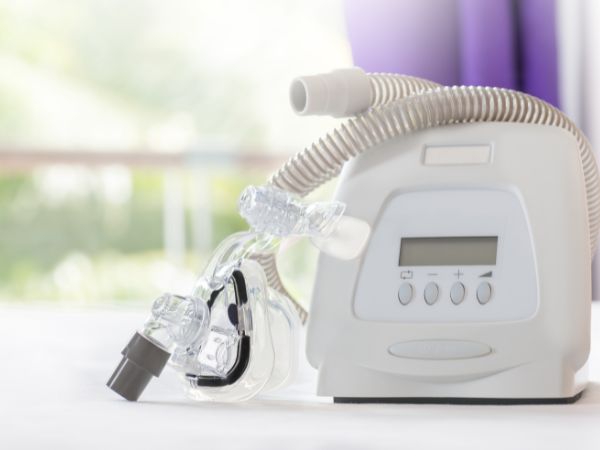
A cleaning schedule should be set for CPAP devices by employing CPAP cleaning machines
The ResMed AirSense 11 as well as the CPAP cleaning machines mentioned in the article, along with many other medical supplies, can be ordered from the Health Supply 770, a reliable name when it comes to medical products. They have a 30-day money-back guarantee and provide your products to you in the shortest possible time. Click the link given in the article to check out the wide range of respiratory support products.
Bottom Line
Patients with obstructive sleep apnea use CPAP machines to assist the breathing process while they are asleep. These machines, despite working in the best way possible, can easily harbor microbes such as bacteria, viruses, as well as fungi.
Therefore, their proper maintenance is required which can be done by regularly cleaning them. For this purpose, CPAP cleaning machines can be employed. These systems use ozone gas, UV light, or disinfecting agents to make the devices germ-free. However, most of these CPAP cleaning machines are unauthorized by the FDA. Rather, cleaning the CPAP machines by using mild soap and warm water is considered a better approach.
For purchasing the ResMed AirSense 11 as well as the CPAP cleaning machines, reliable vendors like Health Supply 770 should be approached. They ensure the provision of quality products along with satisfactory services.
References
